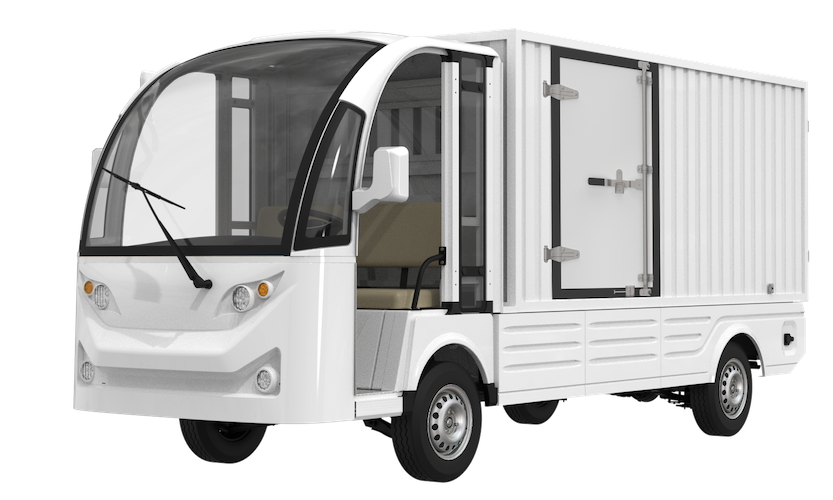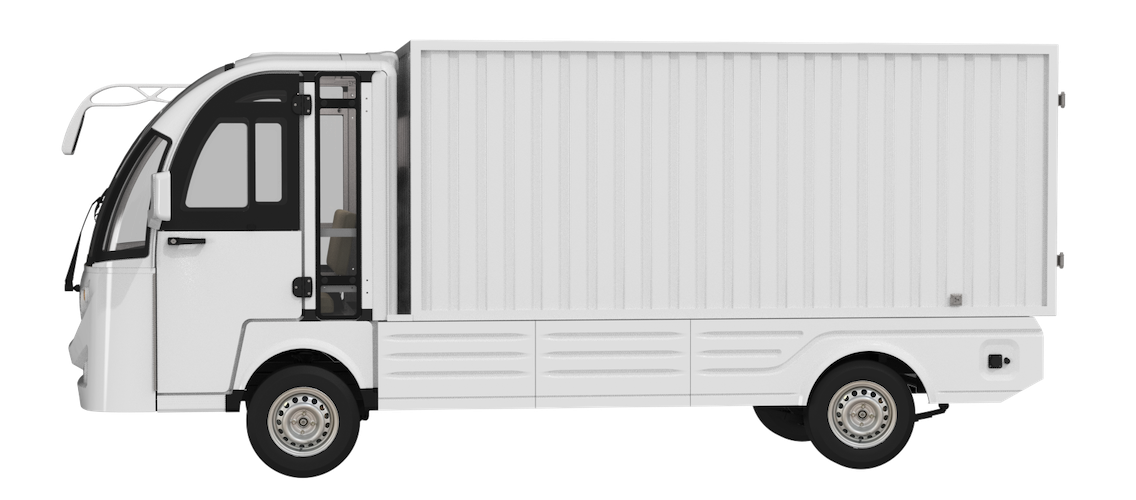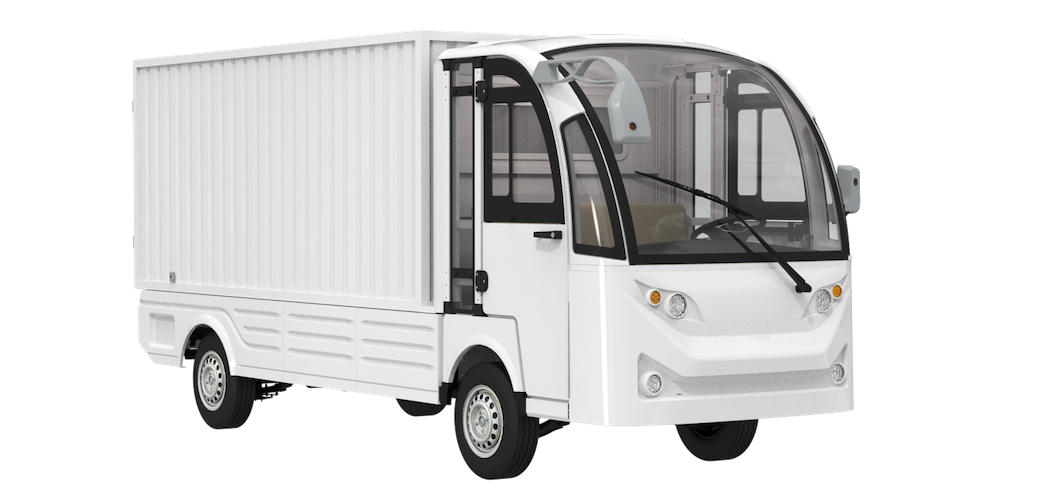Content Menu
● Introduction to Greece's Electric Cargo Vehicle Market
● Why Choose Electric Cargo Vehicles?
● Government Policies and Market Drivers
● Leading Electric Cargo Vehicle Manufacturers and Suppliers in Greece
>> BYD and Petros Petropoulos
>> Mitsubishi Fuso and KAOUSSIS
>> Vilkon Electric Vehicles (VEV)
>> Pilotcar Electric Vehicles
>> Elesco
>> Elektronio Handcrafted Vehicles
>> Rhoé Urban Technologies and Others
● Market Trends and Future Prospects
● Challenges and Opportunities in the Greek Market
● Conclusion
● FAQ
>> 1. What incentives are available for electric cargo vehicle purchases in Greece?
>> 2. Which Greek cities have the best charging infrastructure for electric cargo vehicles?
>> 3. Are electric cargo vehicles suitable for rural deliveries in Greece?
>> 4. How do electric cargo vehicles reduce maintenance costs?
>> 5. Can international companies source electric cargo vehicles from Greece for OEM projects?
Electric cargo vehicles have become a transformative force across Europe—and Greece is no exception. As the nation accelerates its efforts toward sustainable mobility, demand for advanced electric cargo vehicle manufacturers and suppliers has surged. This article provides a comprehensive look at the top companies, market trends, government initiatives, and the prospects for the electric cargo vehicle industry in Greece.

Introduction to Greece's Electric Cargo Vehicle Market
Greece's transportation sector is evolving quickly, with electric cargo vehicles at the forefront of innovation. Several factors drive this transition: the urgency to reduce emissions, EU decarbonization mandates, and a growing appetite for smart, economical delivery solutions. Greek companies, as well as international firms, are now developing and supplying a wide range of electric trucks, utility vans, and mini cargo vehicles to meet these changing market needs.
Demand is especially driven by urban centers such as Athens and Thessaloniki, where air pollution and traffic congestion call for cleaner, more efficient delivery alternatives. Additionally, businesses are recognizing the long-term cost benefits and sustainability credentials of electrified cargo platforms, strengthening market momentum.
Why Choose Electric Cargo Vehicles?
Modern electric cargo vehicles offer distinct advantages that make them compelling choices for businesses and municipalities alike:
- Zero Emissions: These vehicles produce no tailpipe pollutants, essential for improving air quality in densely populated urban areas.
- Low Operating Costs: Electricity is generally cheaper than traditional fuels, and EVs have fewer mechanical parts, leading to reduced maintenance expenses.
- Noise Reduction: Quieter operation supports deliveries during night hours without disturbing residents.
- Instant Torque and Efficient Performance: Electric drivetrains deliver strong pulling power ideal for carrying heavy loads in stop-and-go city traffic.
- Government Incentives: Greek policies provide subsidies, tax credits, and other financial benefits encouraging the purchase and use of electric cargo vehicles.
- Smart Technology Integration: Many electric cargo vehicles are equipped with GPS tracking, telematics, safety systems, and connectivity features enhancing logistics management.
Government Policies and Market Drivers
Greece is committed to the European Union's Sustainable Mobility Strategy, aiming for net-zero emissions by 2050. National and municipal authorities have enacted various policies to nurture the adoption of electric vehicles, especially in commercial transportation. These include:
- Subsidies for electric vehicle purchases targeted at businesses.
- Tax reductions on registrations and operational costs for EVs.
- Investment in expanding public and private EV charging infrastructure.
- Support for innovation and local manufacturing startups.
- Regulations favoring low-emission zones in urban centers.
The alignment of these policies with strong consumer demand and environmental activism is accelerating electrification, positioning Greece as a growing hub for electric cargo vehicle innovation and deployment.
Leading Electric Cargo Vehicle Manufacturers and Suppliers in Greece
BYD and Petros Petropoulos
BYD, one of the world's largest producers of electric vehicles, has made significant inroads into the Greek market through its partnership with Petros Petropoulos, a well-established Greek automotive and equipment distributor. This collaboration enables Greek commercial fleet operators to access BYD's cutting-edge electric trucks and vans, including urban delivery vehicles such as the ETP3 panel van and medium-duty trucks like the ETM6 and ETH8. These models are praised for their reliability, battery efficiency, and adaptability to local delivery scenarios.
The partnership underscores the globalization of the EV supply chain and the benefits of international alliances in scaling electrification in Greece.
Mitsubishi Fuso and KAOUSSIS
A distinctive contribution to Greece's fleet electrification comes from the alliance between Mitsubishi Fuso and the local vehicle body manufacturer KAOUSSIS. Their joint venture has resulted in the delivery of close to 90 electric garbage trucks across Athens and Thessaloniki. These vehicles, based on the eCanter platform, combine rugged functionality with quiet operation, perfect for urban waste management. The silent running helps municipalities comply with noise ordinances while significantly cutting operational emissions.
This project serves as a pioneering example of integrating global electric vehicle technology with domestic manufacturing and urban services.
Vilkon Electric Vehicles (VEV)
Vilkon represents an innovative Greek-Ukrainian electric vehicle start-up, producing nimble mini-cars and cargo vehicles designed for urban logistics. The Vilkon Lulida, their flagship compact electric utility vehicle, offers excellent maneuverability and payload capacity tailored to narrow streets and dense cityscapes common in Greece.
Focusing on local development and environmental sustainability, Vilkon aims to tap the growing segment of last-mile delivery vehicles required by modern e-commerce and urban supply chains.
Pilotcar Electric Vehicles
Pilotcar, partnering with Greek operators, specializes in manufacturing electric city trucks, utility vehicles, and resort transporters optimized for local use. Their P-1000 EEC City Truck is an example of a rugged yet compact EV designed to address the growing demand for silent, zero-emission urban logistics solutions. These vehicles have found applications ranging from small business deliveries to municipal services.
Pilotcar's dedication to reliability and customization makes it a preferred supplier for many Greek fleet operators transitioning to electric powertrains.
Elesco
Elesco provides a range of technology-rich electric cargo vehicles, scooters, and utility bikes designed for urban and suburban deliveries. Their products emphasize long-range capabilities, rider comfort, and smart vehicle integration—such as Bluetooth connectivity and rapid charging options. Elesco's offerings appeal to businesses looking for versatile, efficient, and cost-effective transport solutions that complement larger vehicle fleets.
By combining utility and advanced technology, Elesco fosters a new generation of electric cargo solutions suited to various commercial needs.

Elektronio Handcrafted Vehicles
Elektronio is a cleantech startup focusing on handcrafted electric bicycles and light utility vehicles customized for last-mile delivery operators. These lightweight, green vehicles address the rising demand for eco-friendly urban transport options. Their emphasis on craftsmanship and sustainability aligns well with boutique delivery services and smaller logistics operations that require nimble, zero-emission vehicles.
Through innovation and local expertise, Elektronio contributes to expanding the diversity of electric cargo vehicle types available in Greece.
Rhoé Urban Technologies and Others
Beyond manufacturing, companies like Rhoé Urban Technologies have entered the Greek market offering software and optimization tools tailored to electric fleet operations. Their solutions help fleet managers maximize vehicle efficiency and reduce environmental impacts through data analytics and smart routing.
Other key players include companies specializing in EV charging infrastructure and auxiliary equipment, such as Loader and Speen, supporting the ecosystem needed for a full-scale electric cargo vehicle transition.
Market Trends and Future Prospects
The Greek electric cargo vehicle sector is shaped by a blend of evolving technology, regulatory frameworks, and market demands. Notably, new battery technologies continue to increase vehicle range while reducing costs, making electric cargo vehicles ever more attractive for a variety of commercial uses. Innovations in modular vehicle designs and lightweight materials also promise enhanced payload capacity and operational flexibility.
Moreover, the rise of e-commerce is significantly boosting demand for last-mile delivery vehicles, a segment ideally served by small-to-medium electric cargo vehicles. Greek logistics companies and retailers are adapting by incorporating electric fleets, aiming to reduce their carbon footprint and improve operational efficiency.
Expanding urban low-emission zones and green mobility initiatives are further encouraging the adoption of electric cargo vehicles. The integration of smart city infrastructure, including connected traffic management and real-time fleet monitoring, enhances these vehicles' impact and effectiveness.
Opportunities also exist in specialized applications such as refrigerated electric cargo vans for food transport and utility vehicles used by municipalities and tourism sectors. As public awareness grows and infrastructure spreads, electric cargo vehicle manufacturers and suppliers in Greece are poised to meet diverse and growing needs.
Challenges and Opportunities in the Greek Market
While the rise of electric cargo vehicles is promising, some challenges must be addressed:
- Charging Infrastructure: Despite improvements, charging stations remain unevenly distributed, especially beyond major cities. Expanding fast-charging networks in industrial parks and rural hubs is critical.
- Initial Investment: The upfront cost for electric cargo vehicles can be higher than conventional diesel equivalents, necessitating continued financial incentives and flexible leasing options.
- Market Education: Potential buyers and fleet operators may require more information about total cost of ownership, charging logistics, and vehicle performance.
- Local Manufacturing Scale: Greece's domestic production capabilities are still developing, meaning reliance on imports persists, which could potentially affect prices and availability.
- Battery Lifecycle and Recycling: Managing battery end-of-life and establishing efficient recycling programs remain essential for long-term sustainability.
On the positive side, opportunities abound:
- Untapped segments like refrigerated and cold-chain electric cargo vehicles.
- Integration with renewable energy sources to power fleets at low cost.
- Growth of local cleantech startups introducing unique products suited to Greek conditions.
- EU funding programs and subsidies supporting research, development, and infrastructure.
- Increasing business demand for corporate sustainability enhancing brand reputation.
Collectively, these trends suggest a bright future for the electric cargo vehicle industry in Greece.
Conclusion
Greece's electric cargo vehicle market is on a steep upward trajectory, powered by determined manufacturers, innovative suppliers, and supportive government incentives. With major international brands as well as dynamic local startups investing heavily in cutting-edge solutions, Greek cities like Athens and Thessaloniki stand at the forefront of Europe's zero-emission logistics revolution. Whether seeking a city delivery van, a utility mini-truck, or a full-scale logistics partner, Greece now boasts a diverse ecosystem of electric cargo vehicle manufacturers and suppliers ready to meet every need.
The combined efforts of businesses, policymakers, and technology innovators are rapidly transforming urban freight, demonstrating Greece's commitment to a sustainable and modern transportation future.

FAQ
1. What incentives are available for electric cargo vehicle purchases in Greece?
Eligible buyers enjoy various financial incentives including purchase subsidies, value-added tax (VAT) reductions, and exemptions from registration taxes. The Greek government offers these benefits to encourage businesses and municipalities to transition to zero-emission vehicle fleets.
2. Which Greek cities have the best charging infrastructure for electric cargo vehicles?
Athens and Thessaloniki lead the nation with the most developed public and commercial electric vehicle charging infrastructure. Rapid expansion efforts are underway to extend charging facilities to other cities, key logistics corridors, and industrial areas.
3. Are electric cargo vehicles suitable for rural deliveries in Greece?
Thanks to advances in battery technology and the gradual expansion of charging infrastructure, many electric cargo vehicles now have the range and durability necessary for rural and intercity deliveries. However, operators should plan routes and charging stops carefully in less urbanized areas.
4. How do electric cargo vehicles reduce maintenance costs?
Electric cargo vehicles feature fewer moving parts compared to internal combustion engines. There is no need for oil changes, fewer brake repairs due to regenerative braking, and minimal engine servicing. This results in maintenance cost reductions often ranging between 30% and 50%.
5. Can international companies source electric cargo vehicles from Greece for OEM projects?
Yes, several Greek companies and local branches of global manufacturers provide OEM services, including customization, branding, and bulk supply. These capabilities enable international brands, wholesalers, and distributors to collaborate with Greek electric cargo vehicle manufacturers and suppliers for tailored logistics solutions.



















































